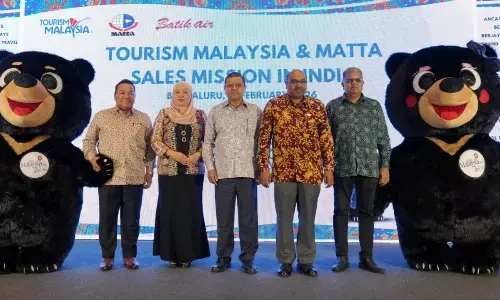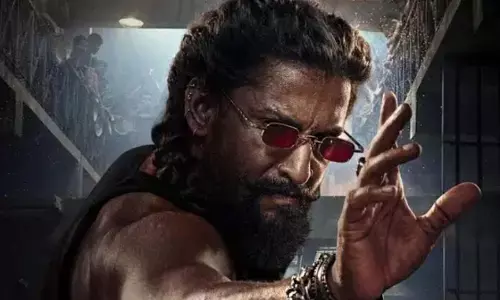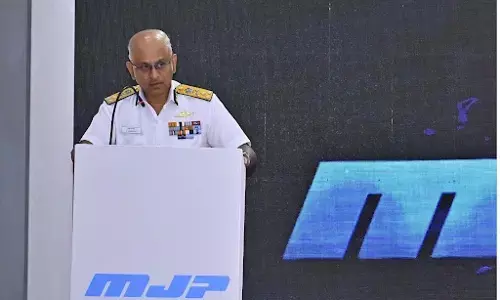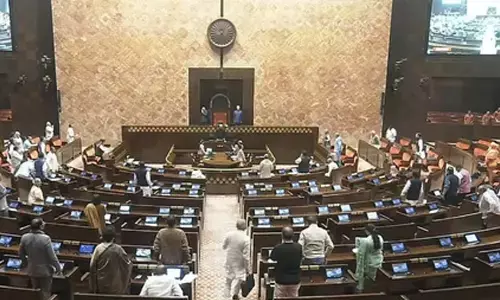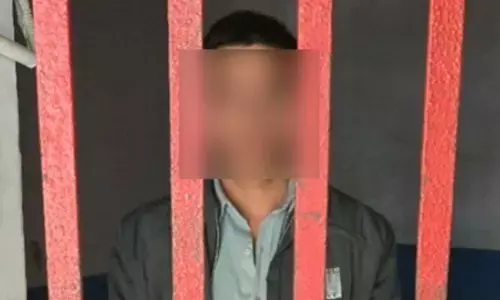She who does not tire, tires adversity: Savitri

She Who Does Not Tire, Tires Adversity: Savitri. Savitri, a mother of 6 children—5 daughters and 1 son—became a widow 12 years after her marriage, when her husband, the eldest of three brothers, died of electrocution.
Savitri, a mother of 6 children—5 daughters and 1 son—became a widow 12 years after her marriage, when her husband, the eldest of three brothers, died of electrocution. Narrating her tearful story, Savitri said that fate had been unkind to her from her early childhood. Her father died when she was a child. They were two sisters and one brother. Savitri had to discontinue her studies after Class 8, and had to stay home to do household chores as her mother would go out to work in the fields.
Life after marriage
Savitri was married at the tender age of 16 years into a farmer’s family. Her husband, the eldest of 3 sons, was into farming. Although Savitri did not know much about farming, she happily helped him on the fields. Her happy married life came to an abrupt end with her husband’s sudden death. Till her husband was alive, things were okay. There was poverty but no mental stress. There was never any disagreement between the two. But within 15 days of his death, life turned bitter for her.

Her in-laws threw her out of the house. They wanted to keep her son but wanted her to leave the house with her 5 daughters. She was brutally beaten, threatened and abused by her father-in-law and her husband’s younger brothers. They even threatened to kill her. She sent 3 of her children to her parents’ home for some time. But even the 3 who were with her in their father’s house were not given enough food to eat. Savitri had no other option but to start working as a farm labourer to make ends meet. Then, on the advice of a well-wisher, she knocked the doors of the court and managed to get some monetary compensation and 2 bighas of land from the 22 bighas owned by her father-in-law.
Her work and achievements
After her husband’s death Savitri saw many troubled days. After being thrown out of her in-laws house, with no roof over her head, she worked as a farm labourer, and later, after getting the 2 bigha land, did some farming on her own land. She started by growing paddy and wheat. Then seeing others growing vegetables, she also gave it a try and began growing chillies, potatoes, cauliflowers and brinjals. She shudders to think of those days. Farming was difficult work for her, as she was not well versed with farming techniques. She would buy seeds from the market, ready the plants and then plant them in her field.
She became a member of the Aaroh Mahila Kisaan Manch ('Aaroh' is a campaign for rights and recognition of women farmers in Uttar Pradesh supported by Oxfam India) three years ago. “This proved to be a boon for me in many ways. Slowly I learned new farming techniques and was encouraged to do all the farming work myself. I am a self-trained farmer”.
Now she is able to do all the work by herself—ploughing, sowing, irrigating, weeding and harvesting. She also manages by herself the few animals—some goats, 1 cow and 3 buffaloes—that she has bought over a period of time. Her daughters also help her now.
In the absence of owning any source of irrigation, she borrows water from others’ tube wells and irrigates her fields at night, as nobody lends it to her during daytime. Aaroh taught her the benefits of organic farming. So, now she uses organic manure along with urea. This has helped her increase the crop yield. She definitely finds vegetable growing more profitable than growing paddy or wheat. She is also part of a goat-rearing group.
Savitri has also done some training of a veterinary compounder from Rae Bareli, Lucknow and Banda. She is now skilled to treat diseases in goats, cows and other animal and can even give them injections too. Despite her own mountain of problems, Savitri helps other women in need as much as she can. She attends meetings and lends her solidarity for any cause related to helping women in distress and for women empowerment.
Savitri earns money by selling the vegetables she grows in the market and/or door to door in the village. She is able to sell some milk of the buffaloes she rears. Through her veterinary work she is able to earn INR 1000 extra per month. There is no other source of income. But she is not able to calculate how much her yearly profits are.
Savitri does not even have a ration card and so does not get anything from the public distribution system. According to her, “The gram Pradhan wants a bribe to get this work done and I do not have money to pay him. I have been running from pillar to post- from the block to the tehsil-but have not succeeded as yet in getting a ration card made for my family”.
Women farmers
“Life of women farmers is tough. Farming is not easy, more so when one has to deal with vagaries of nature. Drought is their biggest enemy and so is the hard work involved—working under the blazing sun and sometimes having no time to even eat. Thirst and hunger become immaterial at times”. She told Citizen News Service (CNS) that “the 2 bighas of land is in my name, which has given me some sense of security”.
Women’s education, marriage and family planning
“If girls are educated and capable of working they can fend for themselves and not face the problems which I faced, partly because I was uneducated. Education is important to make women economically independent. Despite facing so many hardships I have given a proper education to my children”.
“Girls should never be married early, like I was. I faced so many problems in my new home from an early age. My daughters are studying in BA, but I have no intentions of marrying them just now. I did marry my eldest daughter when she was just 15 years old. But I will not repeat the same mistake with my other daughters”. “Families should be planned to be small. In a large family with limited means, children do not get enough and proper education”.
Then and now
Even now Savitri survives by doing some farming and by working on other people’s fields. She is however happy that there is definitely a change in her economic situation. “Earlier I would not know whether there would be anything to eat tomorrow or not. There was no one to help me. But now my children have grown up, are getting a good education and that is a reason to rejoice. They are my biggest asset. I am happy that I have fought against all odds and come out a stronger person every time. But still I wish there was some more source of income for my daughters’ marriage”. As long as she earns enough to keep the home hearth burning and educate her children, Savitri is happy.
Her two daughters are currently doing their graduation; one is studying for a diploma in ITI; another in Class 11 and the youngest is in Class 9. Her son is a graduate. They all studied in the village government school till class 8, after which they studied in Banda, 20 km away, commuting every day.
Message for other women
“I have faced very difficult times, yet I survived and improved my financial condition. So one should always try to better her situation and not give up easily. Getting connected with organizations like Aaroh always helps as it encourages us to fight for our rights and maximize our potential”.
Shobha Shukla, Citizen News Service - CNS
(This article is part of a soon-to-be-released Oxfam India publication: "The Leader Lies In You - Success stories of women farmers in UP")
- Shared under Creative Commons (CC) Attribution License





